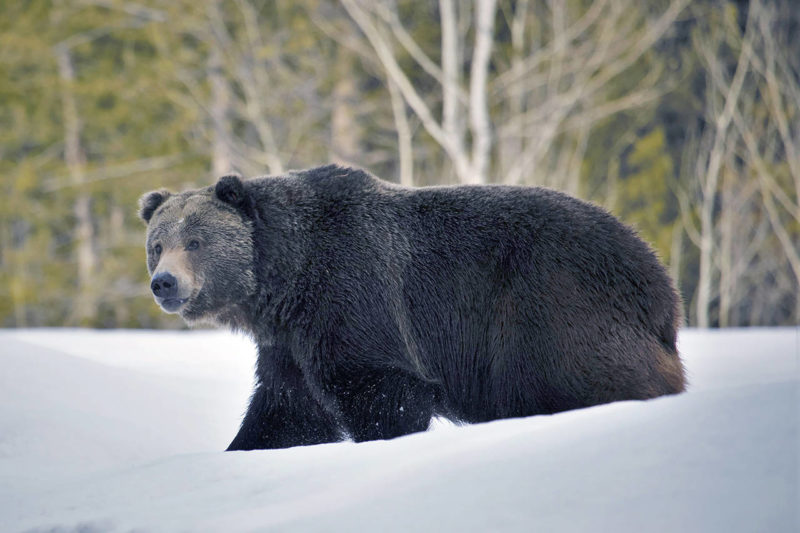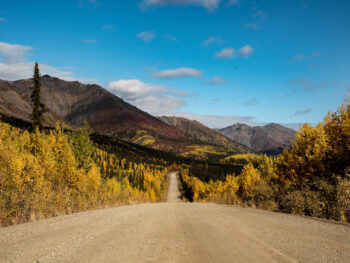Wildlife biologists have captured a female grizzly bear in Washington state for the first time in 40 years, fitting it with a radio collar so they can track its movements.
The grizzly, along with her three cubs, were released to help biologists learn more about the endangered animals, the state Department of Fish and Wildlife said. U.S. Fish and Wildlife Service biologists captured the bear about 16 kilometres from the Washington-Idaho state line on U.S. Forest Service land.
The three cubs ran into the surrounding woods while biologists did a general health check on the mother and fitted her collar, then returned to her when the people went away, the state agency said.
“Grizzly bears once occupied much of the Cascade and Selkirk Ranges, but their numbers were severely reduced as a result of persecution by early settlers and habitat degradation,” said Rich Beausoleil, a biologist with the state. “Grizzly bear recovery started in 1981 and it took 40 years to confirm the first known female in Washington.”
Biologists became aware of the bear through images captured on cameras inside the Selkirk Grizzly Bear Recovery Zone in a remote area of the Selkirk Mountains. That’s one of six recovery zones in the U.S. identified by the federal recovery plan for grizzlies.
Grizzlies in that area roam between northern Idaho, northeastern Washington, and southeastern British Columbia. The population there is considered healthy, and is growing about 3 per cent a year, officials said.
Biologists believe the recently collared female lives in the area, and is not a bear from outside of Washington state.
“A group of bears – a mother and three cubs – were photographed on another occasion on a game camera in the same area three to four weeks prior to the capture,” said Wayne Kasworm, a grizzly bear biologist with U.S. Fish and Wildlife Service. “The natal collar – the white ring around the neck – of one of the cubs leads us to believe this is the same family of bears.”
Four adult males were captured in 1985, 2016 and 2018, but this was the first instance of a female capture, the state agency said.
“Currently there are believed to be at least 70 to 80 grizzly bears in the Selkirk Grizzly Bear Recovery Zone,” Kasworm said. “About half those bears live on the Canadian side of the border, with the other half on the U.S. side.”
Grizzly bears are listed as a threatened species under the federal Endangered Species Act and classified as an endangered species in Washington state. The state agency works collaboratively with federal wildlife officials to monitor grizzly bear survival, reproduction, home range use, food habits, genetics and causes of death.
– Nicholas K. Geranios, The Associated Press
***
Plan your adventures throughout the West Coast at westcoasttraveller.com and follow us on Facebook and Instagram @thewestcoasttraveller. And for the top West Coast Travel stories of the week delivered right to your inbox, sign up for our weekly Armchair Traveller newsletter!











 PHOTOS: ‘It’s a peaceful environment,’ says owner of Cultus Lake Flower Fest
PHOTOS: ‘It’s a peaceful environment,’ says owner of Cultus Lake Flower Fest